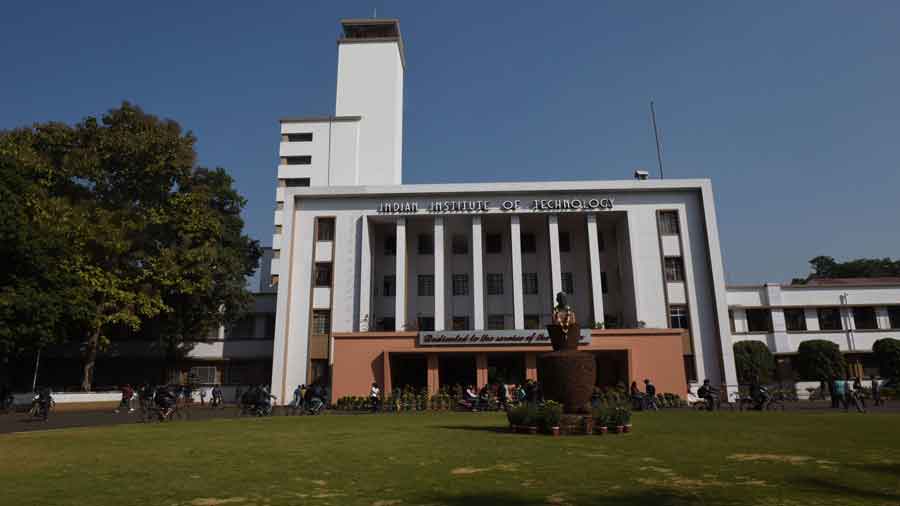The country’s premier institutions have begun sending theses to the government’s research repository, Shodhganga, dropping their years-long opposition after the Centre tied submission to rankings.
Officials attached to several IITs, NITs and IIMs said uploading PhD theses on the digital repository would hurt patent prospects, the reason these institutes had been adverse to join the Shodhganga project, which aims to build an open-access digital resource centre on new knowledge.
The elite institutions reversed course after the government decided to consider research data uploaded on Shodhganga for granting ranks under the National Institutional Ranking Framework (NIRF). The top 100 institutions under the NIRF are granted certain exemptions from University Grants Commission regulations, which allows a degree of autonomy.
The Shodhganga repository is maintained by Inflibnet, a sister concern of the UGC.
Individual institutions had so far been sending data on students’ strength, faculty strength, research output, number of PhDs granted and facilities offered, among other things, to the NIRF team for rankings.
But from 2023, the data-capturing system of the NIRF will also collect from Shodhaganga the PhD data of each institution. The institutions have been asked to submit copies of theses of all PhD candidates in digital format to Shodhganga. The repository will withhold public access to patentable materials for periods of six months to a year, which is much lower than the three years offered by several IITs.
IIT Bombay director Subhasis Chaudhuri said the institution had its own repository where theses were displayed for public access. However, the documents are uploaded after the patents are filed when there is a likelihood of patentability of specific work done by graduates.
“If we upload the theses before filing patents, it will affect their grant of patents because the material is already in the public domain. It takes time for displaying the thesis. It is a problem for us if we give all our thesis copies for immediate public display to Inflibnet,” Chaudhuri said.
Chaudhuri said IIT Bombay had decided to share only those theses where there was no patentable material.
“We have asked our faculty members to say if any of their students’ thesis needs to be held back because of patentable material. We will not be able to share those specific theses with Inflibnet,” Chaudhuri said.
A UGC official said Inflibnet had a policy of maintaining the confidentiality of any thesis for a period of six months to one year. However, certain IITs want a three-year embargo period. No decision has been taken so far, the official said.
The UGC’s regulation on the award of PhDs in 2009 wanted all higher educational institutions to send their theses to Inflibnet for open access.
“The purpose was to check duplication of work by researchers and plagiarism. If any scholar plagiarises, they can be easily caught. Also, open access helps in the spread of knowledge to a wider audience,” the official said.
However, the centrally funded technical institutions (CFTIs) such as IITs, NITs and IIMs did not send their theses to Inflibnet while central universities complied. The UGC does not have any regulatory control over the CFTIs, so it did not take any action.
After the government’s decision to link NIRF ranking to the Inflibnet database, nearly 70 CFTIs including IIT Delhi, IIT Madras, IIT Bombay, IIM Ahmedabad and IIM Calcutta have joined the Shodhganga repository.
Till the end of December 2022, nearly 4.12 lakh theses have been uploaded on Shodhganga. Out of about 1,100 higher educational institutions, nearly 800 have signed agreements with Inflibnet to send their theses. Nearly 150 others are expected to join soon, the UGC official said. The remaining institutions are new ones which may not have produced PhDs, he added.
Prof Anupam Basu, director of NIT Durgapur, agreed with the concerns expressed by several institutions on maintaining the confidentiality of the content of theses.
“It is indeed an issue. Pointing this problem out to the concerned people elicited no results. As of now, we are uploading the abstracts. Anything beyond that will infringe on the privileges of the faculty and the students,” Basu said.
IIT Delhi director Rangan Banerjee said the spirit of the initiative was good.
“If the thesis gets wider reach, it is good. We discussed this issue in our Senate and decided to opt for the scheme. There are some initial problems. I feel a grace period of one year can be provided if requested. This will provide sufficient time for patent filing. If a researcher is sincere, it does not take much time to prepare a patent proposal after submitting it to the open-access database,” he said.












